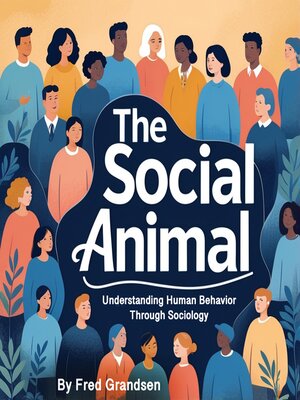The Social Animal
audiobook (Unabridged) ∣ Understanding Human Behavior Through Sociology
By Fred Grandsen

Sign up to save your library
With an OverDrive account, you can save your favorite libraries for at-a-glance information about availability. Find out more about OverDrive accounts.
Find this title in Libby, the library reading app by OverDrive.



Search for a digital library with this title
Title found at these libraries:
| Library Name | Distance |
|---|---|
| Loading... |
Human beings are inherently social creatures, shaped by the need to interact, communicate, and form relationships with others. The social nature of humans is deeply rooted in evolutionary history, where cooperation and group cohesion were essential for survival. Over time, human societies have become increasingly complex, but the fundamental need for social connection remains central to human identity and behavior. This chapter explores the biological, psychological, and sociological foundations of human sociality and how they shape individual and collective behavior.
From an evolutionary perspective, human beings have always relied on social bonds for protection, resource sharing, and collective problem-solving. Early human groups depended on coordinated hunting, gathering, and defense mechanisms to survive in harsh environments. Natural selection favored individuals who could effectively communicate, cooperate, and form alliances, leading to the development of social behaviors such as empathy, altruism, and social hierarchies. The human brain evolved to process social information, with structures such as the prefrontal cortex playing a critical role in understanding and responding to social cues.
Psychologically, the need for social connection is reflected in the human desire for belonging, acceptance, and emotional support. Attachment theory, developed by John Bowlby, suggests that early attachment to caregivers forms the foundation for future social relationships.







